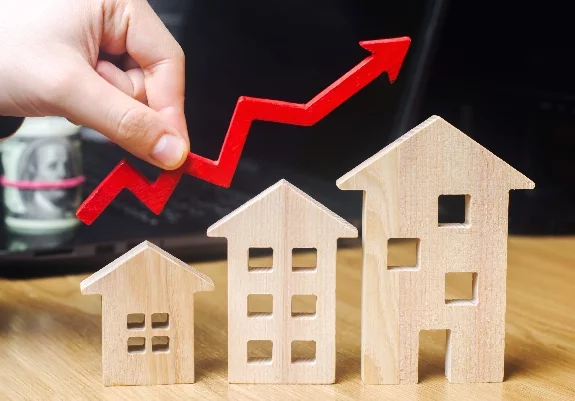Is the UK’s Unprecedented Housing Bubble About to Burst?

Average UK house prices continue to set consecutive records with each passing month; it has never been more expensive to purchase a home in the UK or difficult for first-time buyers to get on the property ladder.
Months ago, even the most optimistic analysts had envisaged a year of relatively modest performance for the country’s real estate sector. Instead, what occurred was an unprecedented average house price increase of more than £22,000 over the past 12 months.
The growth vastly exceeded the potential £15,000 maximum stamp duty saving.
Looking ahead, more brokers and analysts are predicting an inevitable burst of the current housing bubble. With average house prices hovering at all-time highs across much of the country, experts believe that what goes up must eventually come down.
An end to frenzied and often blind purchases
Prior to the withdrawal of the stamp duty holiday on June 31, it had become the norm for desperate homebuyers to make offers on properties without even visiting them in person.
As this temporary buying frenzy tapers off, market watchers are predicting an inevitable toll on the pace of monthly property price increases. A major lack of inventory is likely to shield the sector from a major crash, but significant falls could be on the horizon.
“For anyone looking to purchase a property, the advice is simple: hang fire. If the statistics are reflective of anything over the past year, the stamp duty holiday is of benefit to only one side of the coin: the sellers,” commented Ross Counsell, a chartered surveyor at Good Move.
“If buyers can wait it out until the end of the new [tapered] deadline [of September 30], they should expect to save a significant amount of money.”
His sentiments were shared by Tom Bill, head of UK residential research at Knight Frank, who likewise predicted a gradual shift back to stability for the sector.
“Similarly to rising interest rates, there will be a financial hit from ending the holiday, but the wider point is that it signals a return to normality,” he said.
“The stamp duty holiday hasn’t just squeezed transactions into artificially short periods of time; it has also put people off entering the market.”
“A tax deadline there is no guarantee of meeting, together with stories of sealed bids, overworked conveyancing solicitors, and a shortage of removal vans will have deterred some.”
“Indeed, the second half of this year should see healthy levels of activity in the UK housing market. There is frustrated demand in the system, new supply is starting to pick up, and the labour market is stronger than most economists predicted six months ago.”
No immediate alterations are expected
Whether the housing bubble will eventually burst or not, most experts seem to agree that there are no major alterations expected on the immediate horizon.
“It is no secret that the property market has been on a rampage in the last year. Spurred on by various government initiatives—people unlocking savings and equity in their homes or simply rethinking their living arrangements—there has been massive demand for houses,” commented David Hannah, principal consultant at property firm Cornerstone Tax.
“The question on everyone’s mind is: What will the property market do next? It cannot go on forever increasing; however, the current market trajectory shows no major signs of slowing down; it is not yet time to worry about a bubble bursting.”
